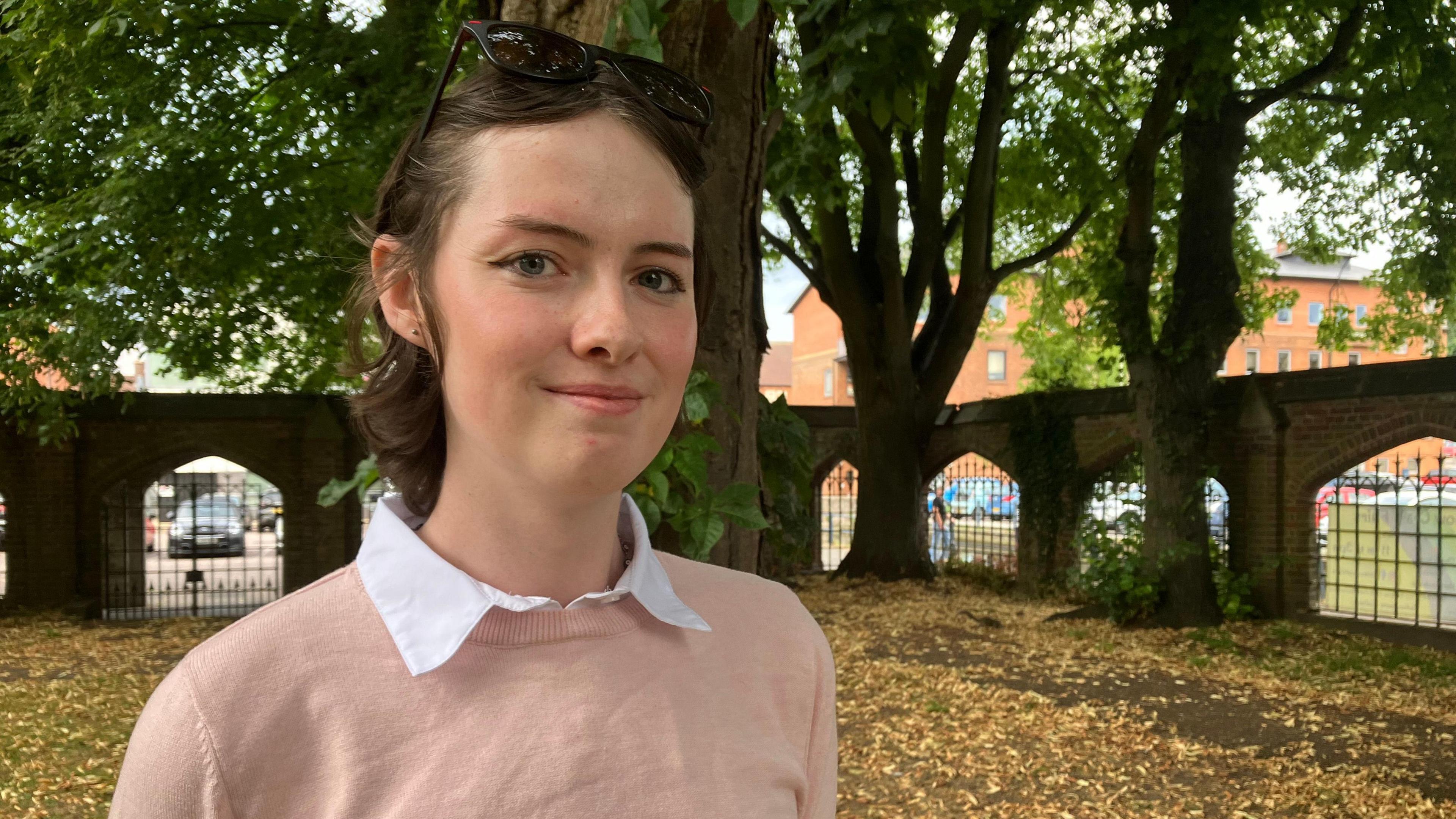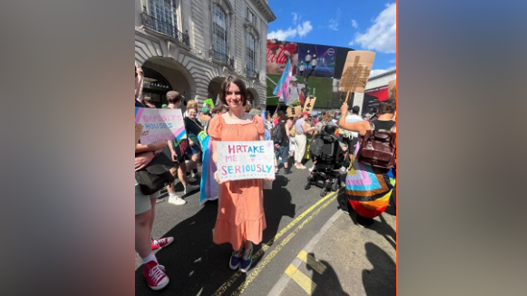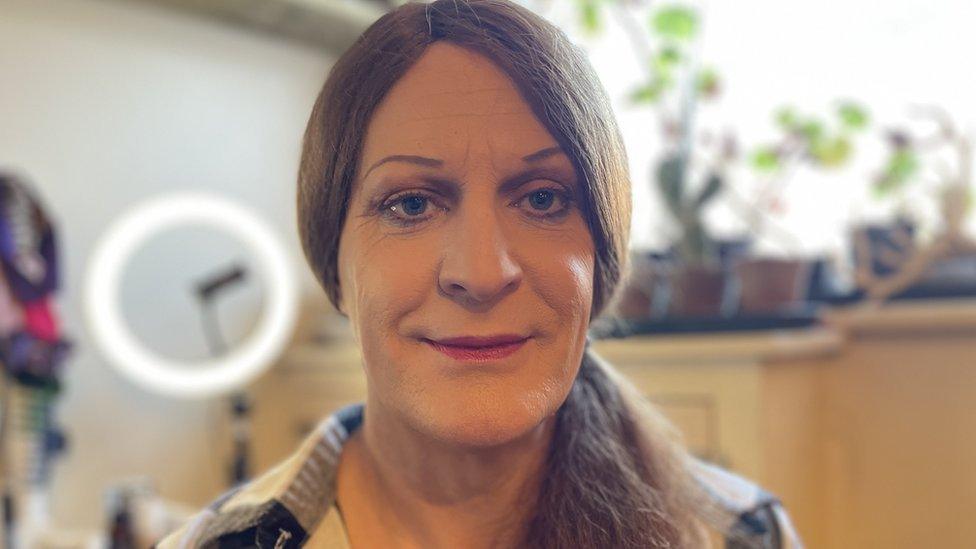Living as a woman is 'best decision' despite hormone therapy bill

Raya says her GP "didn't have a clue" how to treat a person who identifies as transgender
- Published
A trans woman says she has been forced to pay £4,000 a year for private hormone therapy because of obstacles she faced at her GP surgery.
Raya, 25, from Bedfordshire, told the BBC she had difficulty changing her name on her medical notes and said her doctor "didn't have a clue" how to treat a transgender person.
The engineer told friends and family she was transitioning in March, but reached out to her GP in 2022 to access hormone therapy, which she said had "saved her mental health".
She described living openly as a woman as "the best decision of her life."
Trans and non-binary people can choose to take hormone therapy to help them develop the secondary sex characteristics of the gender they identify with.

Raya said she had difficulty when she tried to change her name and pronouns at her GP surgery
Raya said she believed her experience was "typical of somebody like me" and that her surgery, which the BBC has chosen not to name, told her "it was not something they could assist her with".
Instead she said her GP referred her to one of the seven national Gender Identity Clinics, external - with the closest in London - and waiting times typically up to five years or more.
As a result, Raya has had to get her medication privately at a cost of £4,000 a year, and is unable to save for a deposit for a house.
"The NHS is so far in the future for me that I’d likely not see anything done until I’m in my mid to late thirties," she said.
CQC guidance
Surgeries can enter into a shared care agreement, external to allow patients to access private treatment with NHS support.
However, Raya was told that her surgery "could not recommend help with healthcare they did not understand or train for".
Guidance from the Royal College of General Practitioners (RCGP) tells GPs without specific expertise in transgender care not to enter into agreements "unless the practice has made their own decision to do so and feels that it is safe and resourced".
However, guidance on naming and preferred pronouns was designed to ensure "all patients can express their preferences for how they wish to be named and that these are respected" - something Raya said was not her experience.
She said she was asked to bring ID when she tried to change her name but her medical notes said that "he would like to be referred to as Raya".
Care Quality Commission (CQC) guidance also states that "if a patient asks for their name and gender to be changed in their medical records, a signed and dated request is all that is needed".
Raya's details were eventually changed when she had an appointment with a locum at the surgery who she said "looked mortified" when she stood up in her tartan dress, after been called for using the word "Mister and her old name".
The locum told her she could change her name immediately which Raya said felt like "the biggest slap in the face that it was so easy".

Raya joined more than 55,000 people for Trans Pride in London on 29 July
Despite the hurdles, Raya described her post transition life as "almost indescribably better".
"It's the first time I don't feel a barrier between myself and others in making meaningful relationships where I'm not hiding who I am," she said.
A spokesperson for Bedfordshire, Luton and Milton Keynes Integrated Care Board (ICB) said: "We are always sorry to hear that any of our residents is dissatisfied with the service they have received from any NHS healthcare provider.
"In the NHS we value all patients as individuals.
"If a patient is seeing a private specialist, which is neither a commissioned NHS service nor being provided on behalf of the NHS, medicines would usually need to be supplied by that private specialist.
"This is in line with the current recommendations from NHS England on gender identity services."
The ICB said patients must be registered with their GP under their legal name, but many practices acknowledge that a patient’s preferred name may be different.
"The ground-breaking review into health inequalities in Bedfordshire, Luton and Milton Keynes, led by Rev Lloyd Denny, included significant input from people in the trans community, and the review is guiding us as we make our services more responsive to the needs of patients."
Get in touch
Do you have a story suggestion for Beds, Herts & Bucks?
Follow Beds, Herts and Bucks news on BBC Sounds, Facebook, external, Instagram, external and X, external.
Related topics
- Published7 August 2024

- Published20 March 2024
